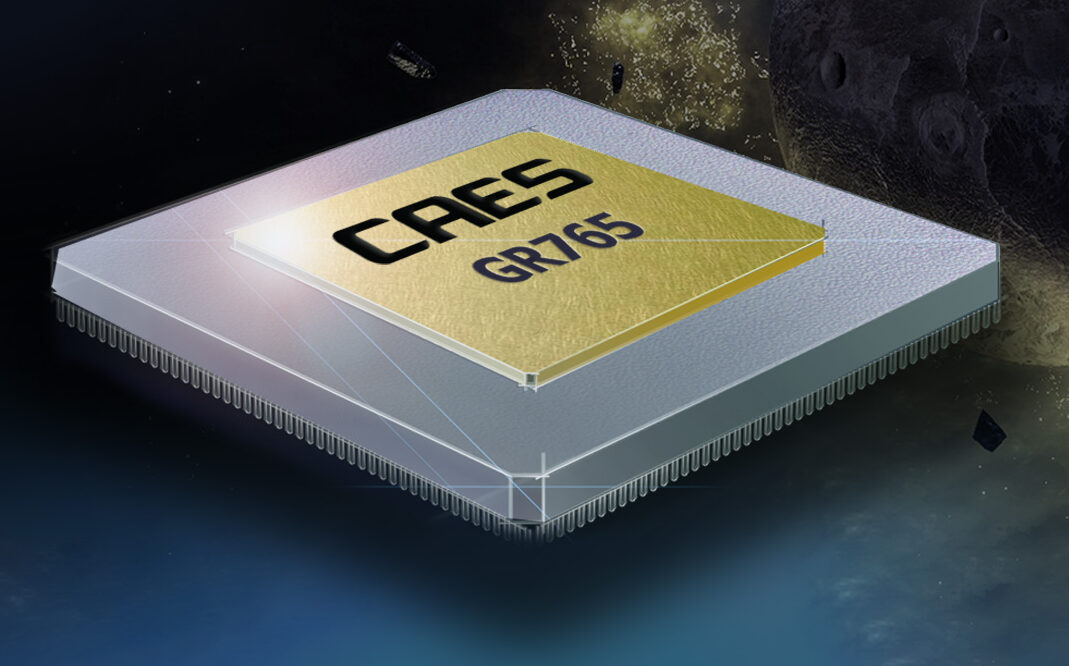ESA Funds Development of CAES User-Selectable CPU for Space

CAES received multiple contracts to develop a user selectable CPU for space applications. Photo: CAES
The European Space Agency has awarded CAES multiple contracts to develop what it calls the first user selectable CPU (central processing unit) for space applications.
CAES announced Sept. 22 that it received contracts from ESA’s Advanced Research in Telecommunications Systems (ARTES) and Technology Development Element (TDE) programs to fund prototype development and manufacturing for the GR765 system-on-chip (SOC). The ARTES program helps European and Canadian companies to develop innovative satcom products and services.
The chip is designed to offer flexibility, allowing users to select between the LEON5 SPARC V8 or NOEL-V RISC-V RV64 processor cores. CAES said this means users can reuse legacy LEON SPARC software or develop new software for the NOEL-V RISC-V architecture.
CAES said it will work closely with European semiconductor company STMicroelectronics on product manufacturing and qualifications. The company estimates that the single event upset (SEU) tolerance for the product is at least five times harder than the current radiation hardened processors.
“CAES is excited to announce the first user-selectable CPU for space. We are providing our customers with options to select the best architecture based on their requirements, while meeting the space industry’s future needs for more computing and a seamless ecosystem,” said Mike Elias, senior vice president and general manager of the Space Systems Division for CAES.
ESA previously funded preliminary development through the General Support Technology Program (GSTP) with the Swedish National Space Agency.
“ESA is proud to collaborate with CAES in developing this next generation of data processing technology which is instrumental to build intelligent, powerful and secure systems in space. Our cooperation will enhance Europe’s capacity to launch and conduct its ambitious future missions and puts us in a pole position to advance the global technological standard for data processing in space,” said Elodie Viau, director of Telecommunications and Integrated Applications at ESA.